
An old redbrick warehouse right next to the rail track dividing the city in two has become a popular downtown bar, with a shaded patio alongside the track. On a humid summer’s day, Freya and Max’s conversation is stopped for several minutes by the loud rumbling and squealing as a mile of shipping containers stacked two high trundle past them.
Freya: Being that close to such a monster is an awesome experience. I just love it! What made you choose this fantastic bar?
Max: The short answer is, it was recommended by a friend, and I thought it would be the sort of place you would like as well.
Freya: And what’s the long answer?
Max: That I didn’t choose it at all. Our being here was predetermined by a network of past causes and events: how we came to live here, the history of the city, the building of the rail-track through the centre of this town, the heat of the day... the chain of cause and effect stretches all the way back into the past… So in fact it was destined to happen.
Freya: I don’t know how you can believe such nonsense.
Max: Well you don’t believe you have free will, do you?
Denne historien er fra April/May 2022-utgaven av Philosophy Now.
Start din 7-dagers gratis prøveperiode på Magzter GOLD for å få tilgang til tusenvis av utvalgte premiumhistorier og 9000+ magasiner og aviser.
Allerede abonnent ? Logg på
Denne historien er fra April/May 2022-utgaven av Philosophy Now.
Start din 7-dagers gratis prøveperiode på Magzter GOLD for å få tilgang til tusenvis av utvalgte premiumhistorier og 9000+ magasiner og aviser.
Allerede abonnent? Logg på
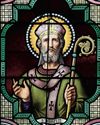
Anselm (1033-1109)
Martin Jenkins recalls the being of the creator of the ontological argument.

Is Brillo Box an Illustration?
Thomas E. Wartenberg uses Warhol's work to illustrate his theory of illustration.
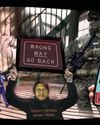
Why is Freedom So Important To Us?
John Shand explains why free will is basic to humanity.

The Funnel of Righteousness
Peter Worley tells us how to be right, righter, rightest.
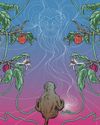
We're as Smart as the Universe Gets
James Miles argues, among other things, that E.T. will be like Kim Kardashian, and that the real threat of advanced AI has been misunderstood.
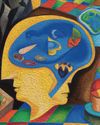
Managing the Mind
Roger Haines contemplates how we consciously manage our minds.
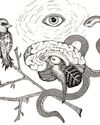
lain McGilchrist's Naturalized Metaphysics
Rogério Severo looks at the brain to see the world anew.

Love & Metaphysics
Peter Graarup Westergaard explains why love is never just physical, with the aid of Donald Davidson's anomalous monism.

Mary Leaves Her Room
Nigel Hems asks, does Mary see colours differently outside her room?
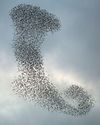
From Birds To Brains
Jonathan Moens considers whether emergence can explain minds from brains.